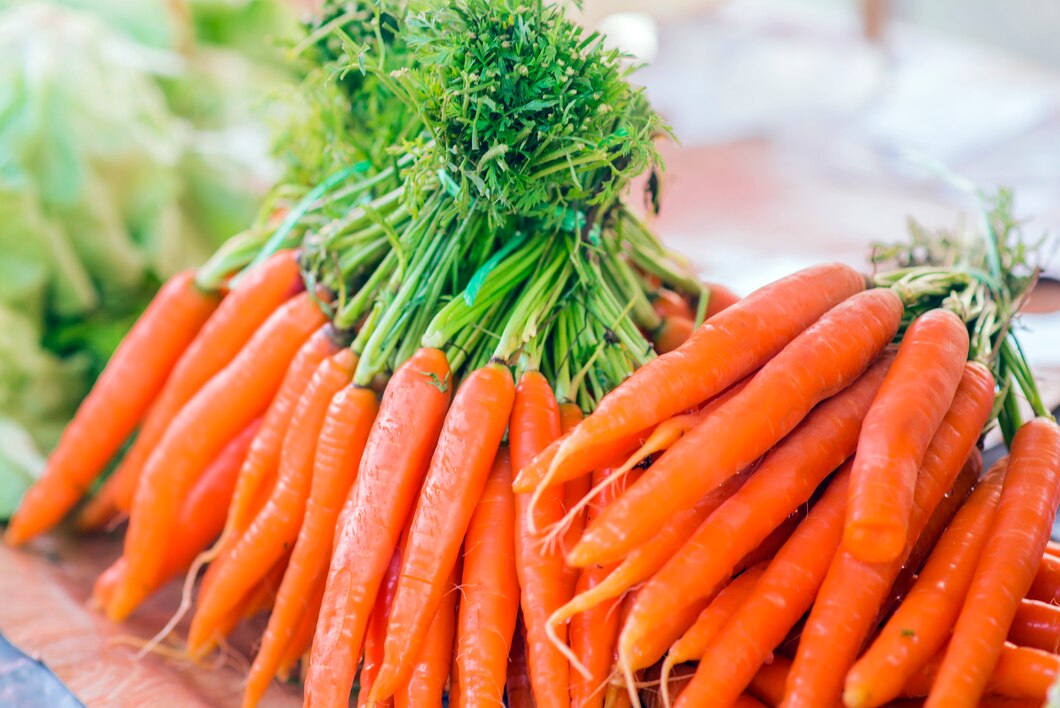Carrots are versatile and used in both sweet and savory dishes.
- Forms: Raw, boiled, steamed, roasted, juiced, pickled, grated, pureed, or made into flour.
- Cuisines:
- Indian: Gajar ka halwa, pickles, salads, soups
- Western: Carrot cake, roasted carrots, soups, stews, juices
- Asian: Stir-fries, kimchi, salads, rolls
- Snacks: Fresh sticks, smoothies, mixed juices
- Rich in Antioxidants
- High in beta-carotene (precursor of vitamin A) → supports vision and skin health
- Contains lutein, zeaxanthin → protect against age-related eye issues
- Eye Health
- Vitamin A prevents night blindness
- Reduces risk of macular degeneration
- Digestive Health
- Good source of dietary fiber → improves digestion, prevents constipation
- Heart Health
- Fiber + antioxidants reduce cholesterol
- Potassium regulates blood pressure
- Cancer Prevention
- Carotenoids may protect against certain cancers (lung, colorectal)
- Skin & Immunity
- Vitamin C boosts immunity
- Carrot juice often used for glowing skin and wound healing
- Calories: ~41 kcal
- Carbohydrates: 10 g
- Protein: 0.9 g
- Fat: 0.2 g
- Fiber: 2.8 g
- Rich in Vitamin A (334% of daily value), Vitamin K, Vitamin C, Potassium, Biotin, Vitamin B6

